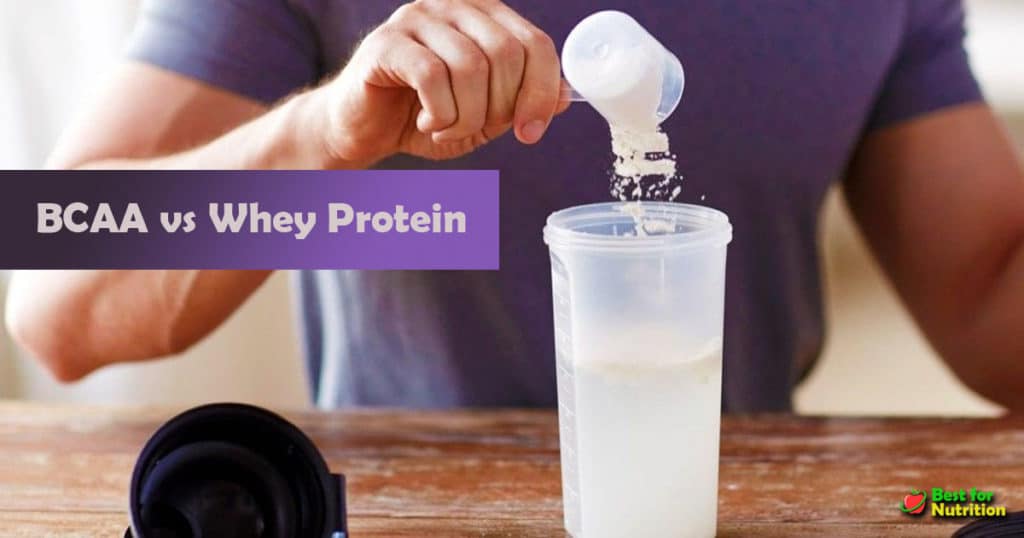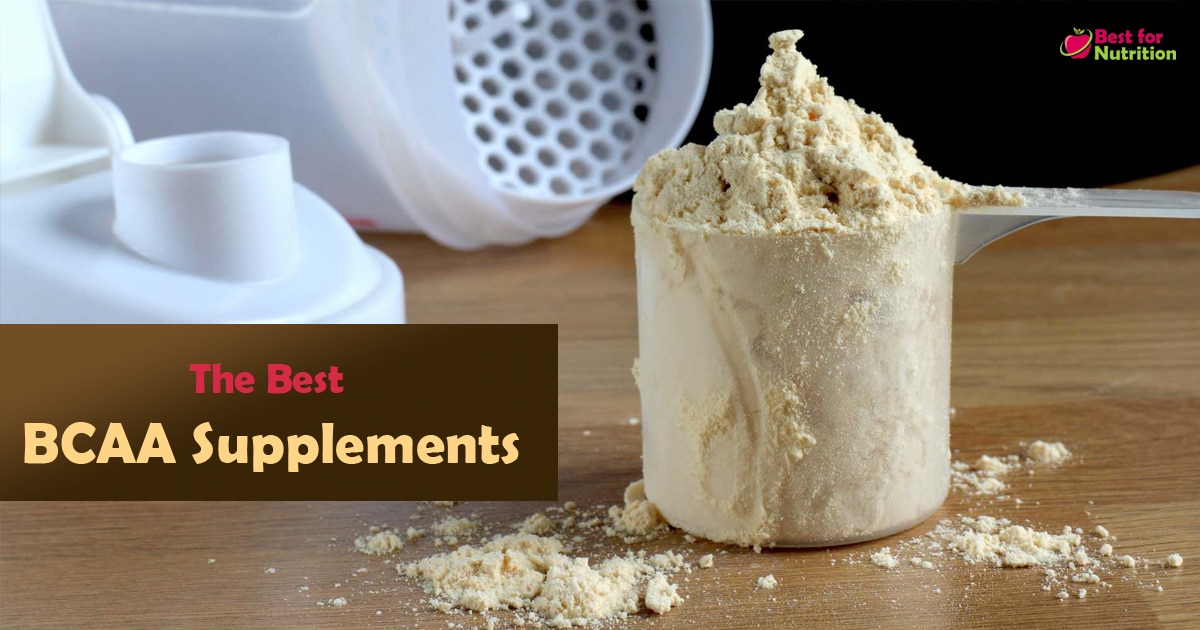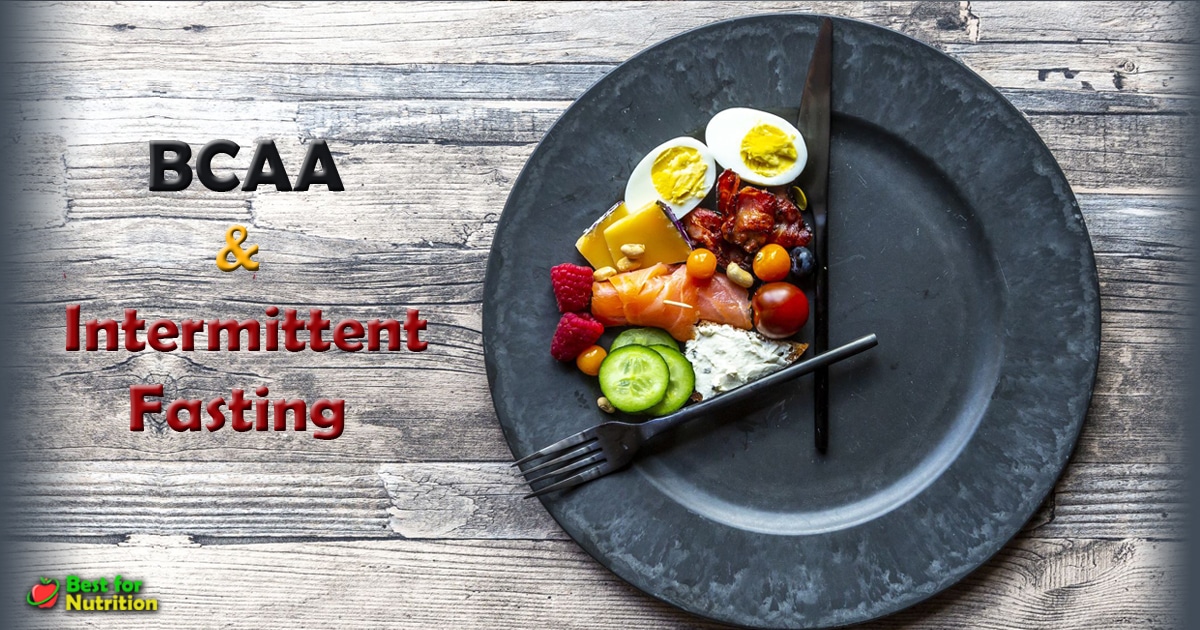BCAAs have created a name for themselves in the workout world because of their effect on muscle building and post-workout muscle recovery.
However, protein powders, especially whey supplements, also rank among the most popular bodybuilding supplements. It’s understandable that many builders, especially those who are new to the fitness world, get quite confused by the array of supplements available.
There are times when a BCAA supplement may be more beneficial than whey protein powder in helping meet your fitness goals and vice versa.
Let’s take a closer look at how whey protein and BCAAs benefit your workout, their effectiveness, differences, and ultimately which one is best for your needs.
- What is Whey Protein?
- What is BCAA?
- BCAA vs Whey Protein: Which one to Choose
- Can You Take Both Whey Protein and BCAA?

What is Whey Protein?
Whey protein supplements are the powdered form of whey.
Whey protein is the liquid that is left behind after milk is curdled and strained. It is full of proteins that are readily absorbed in the body and have been proved to be a perfect way of supplementing our diet in addition to the protein we get from food (1).
Whey protein, the predominant milk protein, contains all the 9 essential amino acids that are needed for the proper functioning of the body. These essential amino acids should be obtained from food and can’t be produced in your body (2).
The protein that was originally seen as a by-product of cheese production, is now the supplement that millions of people in the world use every day. Fitness enthusiasts were thrilled to find out how fast whey protein was absorbed by the body and the abundant health benefits it provided.
When taken regularly as pre-workout, it optimizes your athletic performance and energizes your muscles.
In 2017, a study observed that whey protein is digested quicker than most proteins. It can be used effectively for muscle repair and building fibers that get torn during workouts. They are considered to effectively boost post-workout recovery (3).
Summary: Whey protein is a milk protein, which has all the 9 essential amino acids, that our body needs from food or supplement. That makes it a high-quality protein and a great choice as a protein supplement.
What is BCAA?
BCAA stands for Branched Chain Amino acids and consists of three essential amino acids. They are leucine, isoleucine, and valine (4).
They have a chain that branches off to one side, hence the name pertaining to their molecular structure (5). 35-40 percent of all the essential amino acids present in your body are BCAAs (6).
BCAAs have a unique property that makes it easily digestible in the body. Unlike other amino acids, they are broken down in the muscle, rather than the liver. Hence, they are readily available to use and serve as instant energy during exercise as per requirement (7, 8).
The reason behind its popularity in the world of the supplement is because of its high consumption amongst fitness enthusiasts. BCAAs are absorbed faster than most amino acids (9).
These specialized types of amino acids enhance protein synthesis, boosts athletic performance, and promote lean muscle growth (10).
Amongst the three BCAAs, leucine mostly contributes to building muscles. They also help in managing muscle soreness after your workout (11, 12). Meanwhile, isoleucine and valine are more effective at producing energy and regulating your blood sugar levels (13).
The body can’t make them and the BCAAs need to be obtained from the diet. Animal products such as meat, poultry, eggs; nuts like almonds, brazil nuts, and cashews; whole grains, and lentils are good sources of BCAAs (14, 15, 16).
Summary: BCAAs are the three essential amino acids, leucine, isoleucine, and valine. They are directly digested in the muscles unlike other amino acids and can readily supply energy as needed.
BCAA vs Whey Protein: Which one to Choose
Protein supplements have proven to be a very efficient post-workout supplement. This is especially true for the whey proteins. It contains all the essential amino acids including the Branched Chain amino acids (BCAAs) as well as most of the non-essential amino acids.
So, the obvious question is -Why do I need to have a BCAA supplement when I am already taking a whey protein shake?
Let’s have a look!
Impact on Muscle Growth
Whey contains all the essential amino acids including BCAAs. In fact, whey proteins are the richest source of BCAAs. The array of amino acids in whey can be a great post-workout choice (17, 18).
When you are looking to improve strength or to build muscle, the thing that is needed most is activating your protein synthesis. For this purpose, leucine is the single most important amino acid.
Chemical signals inform your body to build and repair muscle. Leucine effectively amplifies this signal especially following resistance exercise.
However, while leucine stimulates the process, other amino acids are needed to build muscles too. So, even though BCAAs are great, whey supplements have them and more.
Whey has a higher and quicker recovery rate as well. So, when it comes to comparing the impact of whey and BCAAs on muscle growth, the former is much more superior.
Summary: BCAAs, especially leucine, stimulates the process of protein synthesis, thereby making BCAAs’ most coveted supplement for the purpose. However, whey supplements contain all the essential amino acids that are required by the body, which also includes BCAAs.
Workout Benefits
The kind of activity you are doing and your workout goals play a very important part of your supplement choice. The location or rather the environment you are in, the climate or temperature are also important factors.
If you are going for a run in the park or around the block, you are going to end up hot and sweaty in no time.
Studies have stated that supplementing with BCAAs can increase your stamina for doing moderate exercise in the heat. This becomes significant when you are working out in a hot environment. It is great for endurance training and other long-duration activities such as marathons, especially since you are bound to be outside the gym (19, 20, 21).
However, that is not very relevant if you are lifting weights inside a gym. Whey is a better option as it has all the needed amino acids.
BCAA mostly contributes to muscle building and post-workout muscle soreness while whey gives you an instant surge of energy and better muscle repair.
Summary: BCAAs are focussed on muscle building and muscle recovery. Whey on the other hand, not only does that but the other essential amino acids help in a wider range of workout possibilities.
Impact on Weight loss
Weight loss is a primary goal for many people along with the desire for a toned body. Drinking calorie-rich protein shakes, on the other hand, defeat this very purpose.
In order to prevent sabotaging your weight loss goals, it is vital to choose a low-calorie option when it comes to your supplements.
This makes BCAAs a much better option because of its lower calorie content (22).
Just 5 grams of whey protein supplement contains 100 calories while 5 grams of BCAAs has only 20 calories. BCAA is a better option for people who are trying to cut weight while maintaining muscles.
Summary: When protein synthesis in a fasted state is your goal, BCAAs are better than whey because of its low calories.
Quick Absorption
BCAAs are more readily available than whey protein, averting or delaying premature fatigue when training in a fasted condition (23). The amino acids in the whey, have to be broken down and then metabolized, which is not the case for BCAAs.
They are instantly absorbed in the muscles and can be readily used for energy. BCAAs are the only amino acids that can be broken down by muscles, as compared to others that are broken down in the liver.
Leucine, one of the BCAAs, stimulates protein synthesis more so than any regular dietary protein as they are already broken down into the necessary amino acids that the body requires to carry out the reaction. Therefore, the protein synthesis rate is higher.
Summary: BCAAs are readily available to the body during training. Muscles can instantly absorb these amino acids, because unlike others, BCAAs are directly metabolized in the muscles.
The Cost Factor
BCAAs are much more expensive than whey protein. Whey supplements are in the range of 0.75$-1.31$/ serving whereas BCAA supplements 2-4$/serving.
So, if you can’t buy BCAA supplements, you can always opt for whey supplements which are a much cheaper option and give you good results.
Summary: If you want your value for money, Whey supplements are much cheaper than the BCAAs with more or less similar effects.
BCAA Is Already Present In Whey
On average, most of the whey protein contains around 20 percent of BCAA that equals 5-5.5 grams. That is enough to suffice your BCAA requirement.
As it is already noted that 5 grams of BCAA promotes muscle synthesis and reduces soreness post-workout, buying whey supplement is always a better option (24, 25).
The only time it is relevant to buy BCAA, is when you have something specific in mind, like preparation for a bodybuilding competition.
Summary: Whey is BCAAs plus the other essential amino acids. Hence, if you need to choose between any one of them, whey is a better option.
Meal Replacement
Whey supplements can be used as a meal replacement to save you from inconvenience when you are in a hurry, but the same is not applicable for the BCAA supplement.
Summary: whey is a complete protein that consists of all the essential amino acids, which isn’t the case for BCAAs. Hence, whey can be used as a meal substitute but not BCAAs.
Lactose Intolerance
People with lactose intolerance should pay extra attention when choosing a protein powder. Those with lactose intolerance lack an enzyme called lactase which is required for the digestion of lactose. Symptoms of lactose intolerance include bloating, abdominal cramps, and diarrhea.
Whey protein supplements are generally made using proteins in the milk whey, but this watery part of the milk contains lactose. Whey protein isolates undergo an ultrafiltration process that removes most of this lactose. But you will have to try and see if it causes any undesirable reactions, depending on how sensitive you are to the lactose.
BCAA is a better option in this case as it is 100% lactose-free. Remember to combine your BCAA intake with a healthy balanced diet that provides the rest of the amino acids needed by your body.
Summary: If you are allergic to lactose or don’t like the taste of whey, BCAAs are a better choice as a workout supplement.
Can You Take Both Whey Protein and BCAA?
Most people, who are into supplements to boost their workout, shouldn’t be debating about BCAAs and whey at all. You can have them both as they can beautifully complement each other.
Many fitness enthusiasts who use them both have reported great results.
Just mix a scoop of BCAAs with your pre-workout shake and once you are done with your weight lifting, enjoy a protein shake. This will give you the best of both worlds.
Final Note
BCAA and whey, both are useful in their own way in accordance to your necessity. Clearly, your fitness regime will decide what you need.
If you want to lose weight and not compromise on your muscle mass, BCAA is the right choice for you. It can prove beneficial and support intense workout.
However, whey is a complete protein supplement comprising all the 9 essential amino acids that are needed to be obtained from food. And the best part is, the BCAA (leucine, isoleucine, and valine) are also provided by whey.
So, it is much more superior, sufficing your needs, nothing extra needed. For those, who are lactose intolerant and can’t have whey, or have an aversion to it, BCAA is a better option.





